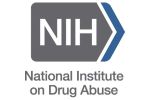Funded By: |
|
|
The PROMOTE* screener was designed for systematic, comprehensive, and easy assessment to improve care and perinatal outcomes. |
|
|
WHY
WHAT
|
|
|
|
|
|
SCIENCE Data-This systematic screening yields discrete data that can be used in chart review research looking at effects of social determinants of health and psychosocial vulnerability on maternal health. Harmonization- The psychosocial data in the PROMOTE can be harmonized to produce rich cross-institutional and nation-wide datasets examining impacts of life context on maternal health outcomes.
1. National Institute of Drug A. NIDA Quick Screen. Accessed 9/2/2019. 2019. 2. Preis H, Djurić PM, Ajirak M, et al. Missingness patterns in a comprehensive instrument identifying psychosocial vulnerability and substance use in antenatal care. J Reprod Infant Psychol. Nov 17 2021:1-15. doi:10.1080/02646838.2021.2004302 3. Preis H, Whitney C, Kocis C, Lobel M. Saving time, signaling trust: Using the PROMOTE self-report screening instrument to enhance prenatal care quality and therapeutic relationships. PEC Innovation. 2022; 4. Preis H., Garry, DJ, Herrera K, Garretto, DJ, Lobel M, Improving Assessment, Treatment, and Understanding of Pregnant Women with Opioid Use Disorder: The Importance of Life Context. Women's Reproductive Health. 2020;7 5. Azeem A. Predicting Substance Use Status During Pregnancy Using Psychosocial Vulnerabilities. Honor's Thesis. Stony Brook University; 2023.
|
|
Contact Us
 Heidi Preis, MSW, PhD | Assistant Professor of Research
Heidi Preis, MSW, PhD | Assistant Professor of Research
Department of Psychology and Department of Obstetrics, Gynecology and Reproductive Medicine
E-mail: Heidi.Preis@stonybrookmedicine.edu


 Screening for psychosocial vulnerabilities and substance use in prenatal care is not well integrated and adopted in clinical practice.
Screening for psychosocial vulnerabilities and substance use in prenatal care is not well integrated and adopted in clinical practice. HOW
HOW